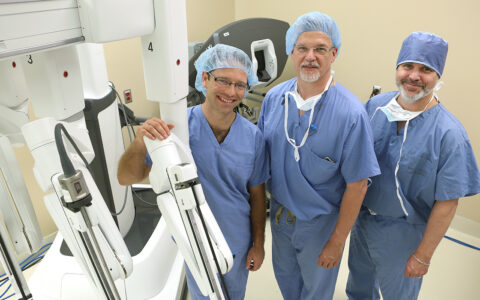The Accreditation Council for Graduate Medical Education (ACGME) milestone ratings provide a framework for assessing performance of trainees during graduate medical education, yet few studies have looked at whether these ratings are predictive of physician performance.
Recently, a study led by Vanderbilt University Medical Center researchers has found they are associated with performance metrics in the post-training workplace. The results were published in JAMA Network Open.
“This is the one of the first studies to demonstrate that trainee milestone ratings are predictive of performance during practice,” said senior author William O. Cooper, M.D., M.P.H., a professor of pediatrics and health policy at Vanderbilt.
Cooper and his colleagues use milestone metrics help identify trainees who might be prone to patient complaints or whose performance falls below expectations. This offers opportunities to provide education and support before they embark as professionals or early in their post-training career.
Reinforcing Core Competencies
Evaluators examined six designated ACGME core competencies: medical knowledge; patient care; practice-based learning and improvement; systems-based practice; interpersonal and communication skills; and professionalism.
A retrospective analysis was conducted covering 9,340 physicians whose milestone ratings as trainees were below targeted values in professionalism and interpersonal and communication skills. These individuals were significantly more likely to receive patient complaints in the first year of post-training practice.
Notably, however, only a small proportion of trainees, fewer than 10 percent, were earning similar low ratings by their final year of training.
“The vast majority of trainees met or exceeded expectations,” Cooper said. “However, those with lower ratings in professionalism and communication skills may need additional support during training or in the early part of their career.”
Importance of Regular Assessment
In light of these findings, Cooper emphasizes the importance of regular developmental assessment and of sharing of progress evaluations with trainees. Providing underperforming trainees with feedback and resources such as peer coaching before they leave medical school. He noted that early-career physicians overall are more susceptible to unsolicited patient complaints and malpractice lawsuits.
“Early career physicians may also want to use milestone metrics to develop individualized learning plans as part of their lifelong learning,” Cooper said.
Resources for helping health care organizations identify at-risk clinicians are provided by the Vanderbilt Health Center for Patient and Professional Advocacy, which assists medical educators, faculty and health systems in addressing the issue.
Future Investigations
Beyond these results, a number of questions remain. Future studies are needed to test whether milestone rating improvements during training lead to a reduction in patient complaints in post-training practice, Cooper said.
“Long-term, we plan to explore whether specific complaint types map to specific milestones,” he said. “And future investigations should evaluate the outcomes of efforts to harmonize milestone ratings across different specialties.”





